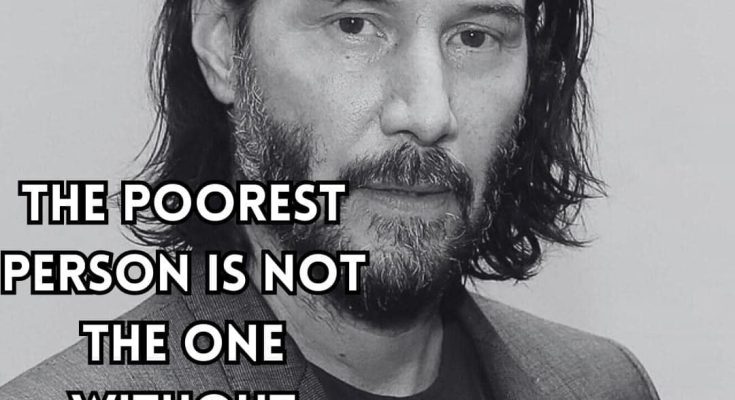The Origin of the Quote: “The most impoverished individual is not the one lacking wealth, but rather the one lacking virtue.”
Origin and Meaning
The statement “The most impoverished individual is not the one lacking money, but the one lacking goodness” conveys an enduring truth that goes beyond material riches. It implies that genuine poverty is not determined by the lack of financial means, but by the absence of moral and ethical principles. This viewpoint promotes a more profound appreciation of wealth, one that emphasizes generosity, honesty, and empathy over material belongings.
Historical Context
Over the course of history, different cultures and schools of thought have expressed this idea. Ancient thinkers such as Socrates and Confucius stressed the significance of virtue rather than wealth. Many religious scriptures prioritize the significance of moral actions and ethical living over material prosperity. For example, in Christianity, the Bible conveys the message that “For what shall it profit a man, if he shall gain the whole world, and lose his own soul?” (Mark 8:36).
In Buddhism, prioritizing the cultivation of good karma through ethical behavior is emphasized over the accumulation of material wealth. These principles underscore the widespread acknowledgment of moral and ethical standards as the genuine indicator of an individual’s prosperity.
Modern Implications
In the current global landscape, characterized by significant economic inequalities and widespread consumerism, this statement acts as a prompt to reflect on what is genuinely important. It prompts us to delve deeper and evaluate the substance of our lives in relation to our conduct and its effects on others. It urges us to nurture virtue within ourselves and our societies, promoting a culture where ethical prosperity is esteemed as highly, if not more so, than monetary prosperity.
The person who doesn’t have goodness is actually the poorest, not the one without money. This idea tells us that we should think about poverty and wealth in a new way. It tells us that being truly rich is about our personality and the kindness we show to others. As we go through life, we should remember this and let it help us make good choices and do things that help other people.
You can share what you think about this point of view and how it connects with your own experiences in the comments section!




